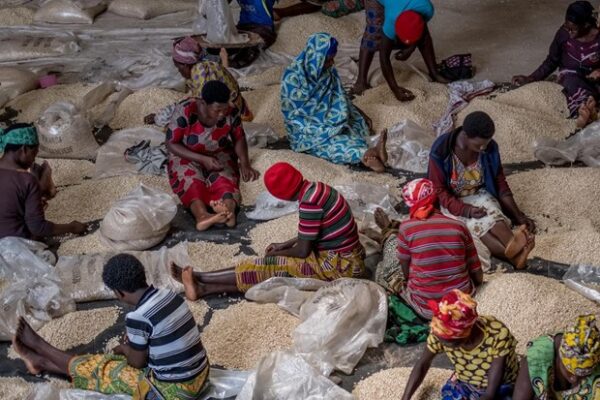The International Fund for Agricultural Development (IFAD), with the Rwanda Agriculture Board (RAB), cooperatives, private sector partners and development organizations such as IDH, today launched the pilot phase of the food systems initiative Food and Agriculture Resilience Mission Pillar 3 (FARM P3) focusing on maize and soybean value chains in Rwanda.
FARM P3 will bring the public and private sector together to improve the livelihoods of up to 4,000 smallholder farmers in the Kayonza District by reducing food loss through better post-harvest practices and strengthening market access. With a total budget of US$1.23 million, it complements the larger IFAD-funded Kayonza Irrigation and Integrated Watershed Management Project – Phase II -KIIWP2-(2021 – 2028), which supports over 40,000 rural households in boosting food security and climate resilience.
“Through FARM P3, cooperatives, small and medium enterprises (SMEs) and banks will work together in a more structured way to foster win-win partnerships across key value chains. The focus is not only on training and equipment, but also on building sustainable business relationships that ensure smallholder farmers can sell more, waste less and increase their incomes,” said Dagmawi Habte-Selassie, IFAD Country Director.
A key objective of the pilot is cutting post-harvest maize losses, currently estimated at 13.8 per cent. By co-investing in drying shelters for cooperatives and expanding access to mobile mechanical dryers for SMEs, FARM P3 will help farmers reduce grain moisture, meet private sector standards and secure better prices. For buyers, this means higher-quality maize, lower sourcing risks, and stronger, long-term partnerships with local suppliers.
FARM P3 is part of a three-pillar project to address the global food crisis. IFAD is coordinating the third pillar, aimed at speeding up the transition to sustainable and resilient food systems, especially in Africa. In Rwanda, IFAD is working to increase its development impact through partnering with private sector investors in rural areas and food systems. This pilot aligns farmer organizations, buyers and service providers around shared goals.
“By reducing post-harvest losses and fostering reliable market linkages, FARM P3 will contribute to advancing PSTA 5 priorities of resilient, inclusive and market-driven value chains—empowering smallholders while creating new investment opportunities for private sector actors,” said Solange Uwituze, Acting Director General of RAB.
Alongside maize, the programme also lays the groundwork for commercial soybean sourcing to meet growing private-sector demand. Activities with farmers include carrying out an inclusive business analysis, setting up demonstration plots, investing in equipment, and conducting joint training by public and private partners.
“Findings from the inclusive business analysis conducted with participating SMEs indicate that, with Good Agricultural Practices (GAP) and clear market links, soybean crops can raise smallholder net incomes by around 2.3 times over five years, and it already outperforms traditional beans on average,” said Wangari Nduta, Project Manager, Business Analytics, IDH.
Launched by France under the EU Council Presidency, FARM P3 engages with the private sector and development partners to create sustained value for smallholder farmers. FARM P3 is active in Senegal, Sierra Leone and Zimbabwe, where it adapts its model to local value chains and development needs.








